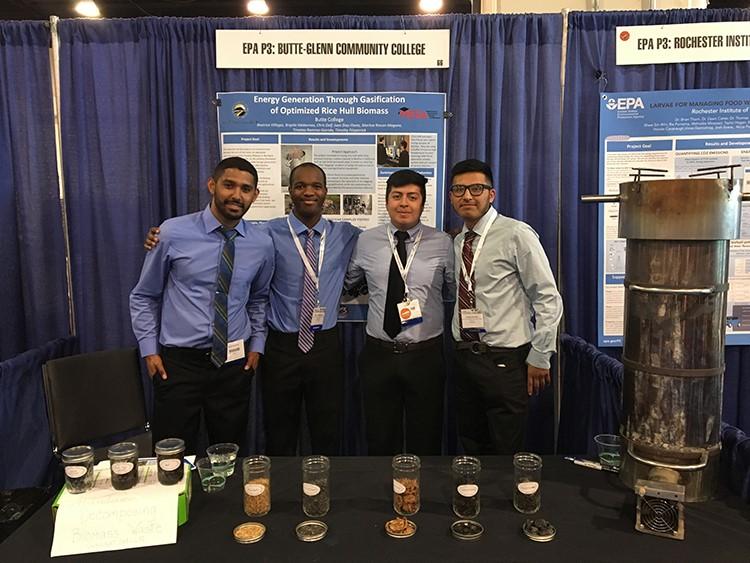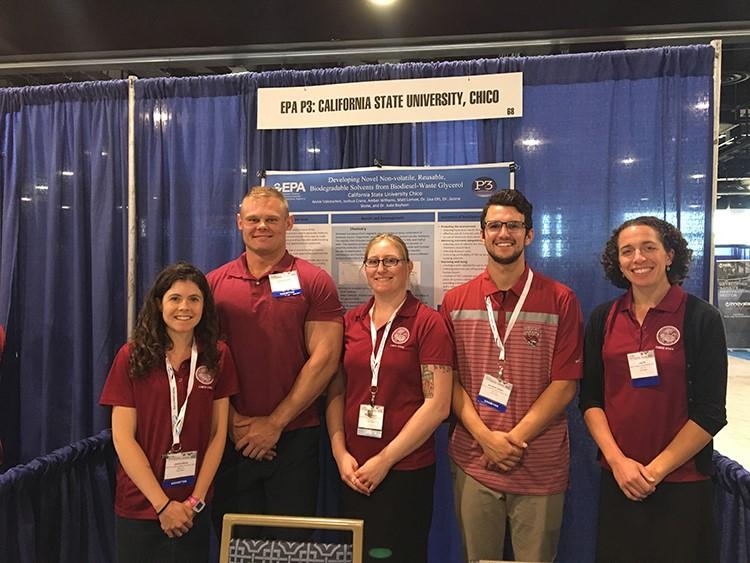News Releases from Region 09
U.S. EPA awards $148,000 to two Northern California colleges for innovative technology projects
Media Contact: Margot Perez-Sullivan, 415-947-4149, perezsullivan.margot@epa.gov
SAN FRANCISCO – Today, the U.S. Environmental Protection Agency (EPA) awarded two People, Prosperity and the Planet (P3) grants totaling $148,333 to California State University, Chico and Butte College.
At Chico State, the $73,333 grant will be used to design a sustainable solution to glycerol waste, a by-product of biodiesel manufacturing. Oroville-based Butte College will use the $75,000 to research the conversion of agricultural waste into a renewable, carbon-negative biochar, maximizing carbon sequestration in the soil to improve water retention and agricultural productivity.
“These students are applying what they have learned in the classroom to create innovative solutions to environmental challenges,” said EPA Administrator Scott Pruitt. “These awards support the next generation of scientists and engineers in their commitment to environmental protection, while helping states, tribes, and local communities find solutions to their environmental issues.”
“We applaud these students for their focus on compelling, complex environmental issues,” said Mike Stoker, Administrator for the EPA’s Pacific Southwest office. “The innovative research funded today will help us better manage waste streams and improve agricultural productivity.”
"This effort will be the continuation of current efforts already in progress working with several local agricultural operations in our region of California, including Berkeley Olive Grove in Oroville and other local farms and agriculture partners in Butte and Glenn Counties,” said John Dahlgren, Chair of Butte College’s Department of Computer Science, Sustainable Technologies and Engineering.
Nationally, EPA awarded more than $557,000 in funding for 8 student teams through the P3 Grants Program during Phase II. These teams, made up of college students from across the country, are developing sustainable technologies to solve current environmental and public health challenges.
 EPA P3 Phase II winners from Butte College
EPA P3 Phase II winners from Butte College
 EPA P3 Phase II winners from California State University, Chico
EPA P3 Phase II winners from California State University, Chico
P3 Phase II winners include:
- Montclair State University – Montclair, NJ
- Clarkson University – Potsdam, NY
- Kennesaw State University – Kennesaw, GA
- University of Cincinnati – Cincinnati, OH
- Texas Woman’s University – Denton, TX
- California State University, Chico – Chico, CA
- University of California, Riverside – Riverside, CA
- Butte College – Oroville, CA
Background
The P3 program is a two-phase research grants program that challenges students to research, develop, and design innovative projects addressing environmental and public health challenges. Phase I serves as a “proof of concept,” where teams are awarded a $15,000 grant to develop their idea and showcase their research in the spring at EPA's National Sustainable Design Expo. These teams are then eligible to compete for a Phase II grant of up to $75,000 to implement their design in a real-world setting.
Past P3 winners have gone on to start businesses based on ideas and products developed through their P3 project. For example, a 2007 P3 winning team from University of California Berkeley went on to create SimpleWaterExit, a water treatment company that specializes in household water treatment systems. Another successful 2007 P3 team from the University of Virginia created the Learning Barge, as a part of the Elizabeth River ProjectExit. The Learning Barge is the world’s first floating wetland classroom and America’s Greenest Vessel. It's a "steward ship," teaching children that live nearby about environmental stewardship and how to make the river swimmable and fishable by 2020.
To learn more about the projects of the 2018 P3 Phase II winners, visit: https://www.epa.gov/P3/20172018-p3-grant-recipients
For more information on the P3 Program, visit: http://www.epa.gov/P3
